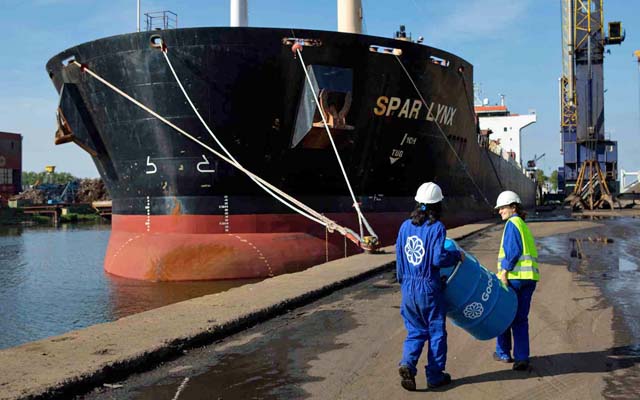Amsterdam-based GoodFuels, part of Finco, says it has been investing in making low-carbon, more sustainable alternatives to fossil fuels available since inception in 2015.
The company has highlighted five things shipowners can do to help make the sustainable fuel economy a reality. GoodFuels says that as a pioneer and changemaker in the fuel industry, it provides concrete, ready-to-use alternatives and works with clients and industry partners to make sure its solutions are extensively tested, audited, verified, and reported on. The company says it believes in highlighting opportunities instead of threats, promoting solutions instead of problems and identifying next steps instead of dead-end roads. Its list of recommendations is compiled with solutions beyond our current product portfolio, as systemic change requires a holistic view of the industry and of the challenges that moving towards zero-carbon shipping present.
- Invest in the sustainable fuel ecosystem. In addition to reducing a fleet’s CO2e emissions by 80-90% (and even 92.4% in the case of biomethanol), sailing on renewable fuels has other benefits. The main one is that in addition to receiving a low-carbon alternative to fossil fuel, a purchase of renewable fuels is also an investment in the development of a more sustainable fuel system.
- Consider ‘conversion-ready’ in fleet expansion. As a relatively new trend in newbuilds, some shipowners are opting for vessels that can be readily converted to run on lower-carbon fuels by retrofitting at a later stage, according to a study published by Maersk Mc-Kinney Møller Center for Zero Carbon Shipping. During construction, additional room can be allocated for potential future installations of bunkering systems for new fuel types. In the short term, this would lead to higher construction costs, but this would later lead to lower capital expenditures should a low-carbon fuel conversion be required.
- Retrofit existing engines. With an average lifespan of about 30 years, most vessels might not apply for replacement just yet. Luckily, this does not mean shipowners should wait until these ships reach their end of life. There’s no need to wait for conversion-ready new builds. Vessels that are currently in operation might also be retrofitted to run on renewable fuels by OEMs like Wärtsilä and MAN Energy Solutions.
- Form or join a decarbonisation consortium. Moving towards a renewable fuel economy will require a complete industry overhaul. From this respect, collaboration and knowledge-sharing are key. Not only to get the new fuel technologies fully developed and ready for large-scale adoption but also to allow the entire fuel ecosystem to evolve along with it. Collaboration with industry peers to advance new ways of working is key. At the same time, it is vital for the industry to advocate for policies and incentives that support the adoption of renewable transportation technologies.
- Monitor and report. Every step in the journey towards zero-carbon shipping is another in the right direction for the entire industry. Communicating these steps is key as this helps to inspire industry peers. Building a Sustainable Marine Fuel track record is key to primarily gaining knowledge and preparing to scale up these technologies, and also helps the exchange of knowledge with industry peers and other stakeholders. Tracking and reporting emissions reductions and progress toward renewable energy goals helps hold internal stakeholders accountable and demonstrates a commitment to sustainability.
GoodFuels says that it is always on the lookout for methods to scale up the production of low-carbon fuels from waste streams and innovative feedstocks, and is open to discussions about trialling new fuels with ship operators.
Image: GoodFuels offers suggestions for a sustainable fuel future (source: GoodFuels)



